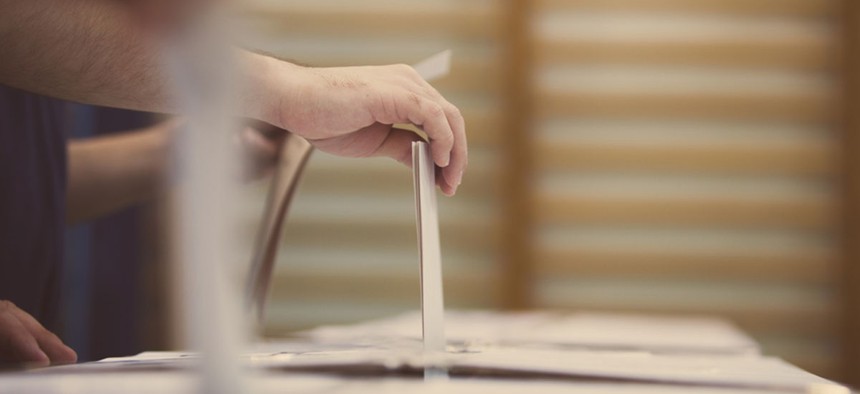
Alexandru Nika/Shutterstock.com
Harvard Research Suggests That an Entire Global Generation Has Lost Faith in Democracy
Fed up—or giving up?
People everywhere are down on democracy. Especially young people. In fact, so rampant is democratic indifference and disengagement among millennials that a shocking share of them are open to trying something new—like, say, government by military coup.
That’s according to research by Yascha Mounk, a Harvard University researcher, and Roberto Stefan Foa, a political scientist at the University of Melbourne. The remit of their study, which the Journal of Democracy will publish in January, analyzes historical data on attitudes toward government that spans various generations in North America, Western Europe, Australia, and New Zealand. They find that, across the board, citizens of stable liberal democracies have grown jaded about their government, say Mounk and Foa—and worse.

“[T]hey have also become more cynical about the value of democracy as a political system, less hopeful that anything they do might influence public policy,” they write in a previous article on their research (pdf) published in Jul. 2016, “and more willing to express support for authoritarian alternatives.”
And it’s among millennials that this “crisis of democratic legitimacy” is starkest. Young people today are more into political radicalism and exhibit less support for freedom of speech than previous generations, according to the July study. Consider some of the other data Mounk and Foa report:
- Okay with autocracy: Many fewer millennials in both Europe and the US object outright to military coups than their elders.
- Rights, schmights: Only around a third of US millennials see civil rights as “absolutely essential” in a democracy, compared with 41% among older Americans. In the European Union, it’s 39% and 45%, respectively.
- Election optional: More than a quarter of US millennials dismiss the importance of free elections to democracy. (Though rates are overall lower in Europe, millennials also agree at higher rates than older generations.)
- They’re just not that into it: Back in 1990, majorities of both young and older people reported being interested in politics. For millennials, that’s no longer true.
Couldn’t you chalk this up to time-honored tendencies of youth disaffection?
Not really. For instance, in 1995, only 16% of American youngsters—those in their late teens and early 20s—thought democracy was a “bad” political system for their nation. In 2011, nearly a quarter of millennials did. Though the increase among European youth was less marked, it was still significant, say the researchers.

(Yascha Mounk and Roberto Stefan Foa, “The Danger of Deconsolidation,” Journal of Democracy)

It might be that since this particular generation of young people have grown up in highly stable democracies, they take democracy for granted. It would then stand to reason that, as Mounk and Foa found, millennials in the US and Europe are less likely to participate in conventional civic engagement.
But millennials aren’t doing much unconventional political action either. While one in 11 American baby-boomers had demonstrated in a political protest in the previous year, only one in 15 millennials had.
It’s not clear how this squares with real life. Sharp deteriorations in measures of democratic health presaged autocratic shifts in Poland and Venezuela, as the New York Times points out. But those were both much younger democracies than those in the US and Western Europe.
Still, recent events there aren’t exactly heartening. For instance, millennial Americans voted in far greater numbers for Hillary Clinton than her anti-democratic rival, Donald Trump. Then again, Clinton would have won in a landslide if Democratic-leaning millennials had voted. But too many of them simply didn’t.






